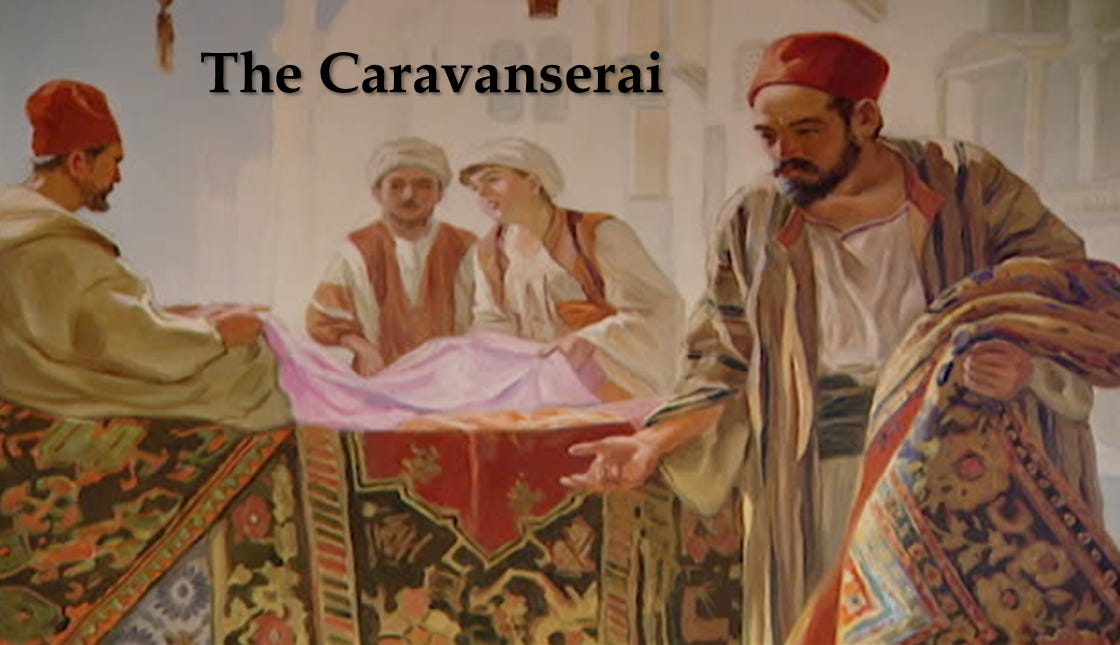Introduction
It’s easy to look on a map and to see a world of lines, dots, and borders. In a post-Westphalian world, we’re in so many ways defined by the very idea of the nation state, and in fact this often permeates in ethnographic lines. Much of public education contains history courses that generally embrace this narrative. I can remember middle school teachers talking about the Sumerians and the Egyptians and the Franks and the Romans as single identities. There was, according to these classes, a Mongol state, an Indian country, and other misconceived political identities. This framework promotes an idea that the nation state has always existed and that individuals can be clearly delineated into squared off check boxes.
The Caravanserai seeks to fight against this perspective. Throughout history, the world was more interconnected and interrelated then we might be led to believe. Merchants, missionaries, and monarchs all played a role in facilitating a world where connections meant everything. The West African salt trade was instrumental in affecting Moroccan, Andalusian, and European politics. The Medieval Eurasian steppe greatly shaped the modern histories of Russia and China. Individuals across history often took on multiple identities and ethnocultural allegiances. There were Roman Arab emperors. There were Andalusian Jews who would later flee to the Ottoman Empire in light of the Spanish Inquisition. Sogdians, Tajiks, and other Central Asian groups criss crossed Eurasia, never solidifying themselves in any particular place.
There is absolutely no reason to assume that the world was ever so stagnant and insular. Instead, cultural diffusion and ethnographic connections were the norm since the dawn of history. And in fact, we’ve seen the troubling manifestations this more isolated and even xenophobic perspective of history has resulted in. Ultranationalism, racism, and religious intolerance are all symptoms of a misguided perspective on history. By ignoring this interconnectivity, we are choosing to embrace a world that never truly existed.
To that end, I think I need to explain why this publication and podcast are named as they are. When merchants crossed the various routes, carrying goods like silks and spices, they would find respite and hospitality at roadside inns and taverns. Known as the Caravanserai, these institutions would house a multitude of traveling groups hailing from all sorts of directions and across all reaches of the world. One could smell spices from India. One could see tea from China. One could see minx furs and sable from Siberia. The Caravanserai was in many ways the epitome of a world that was so interlocked and entwined. This principle is what underlines the Caravanserai. In each podcast episode or written article, we’re going to analyze a world of cultural connectivity. We’ll take a look at specific topics or regions, but we’re never going to assess these points in isolation. Everything is connected. Everything is related. All roads don’t lead to Rome. They simply lead to other roads.
Why subscribe?
You don’t have to.


